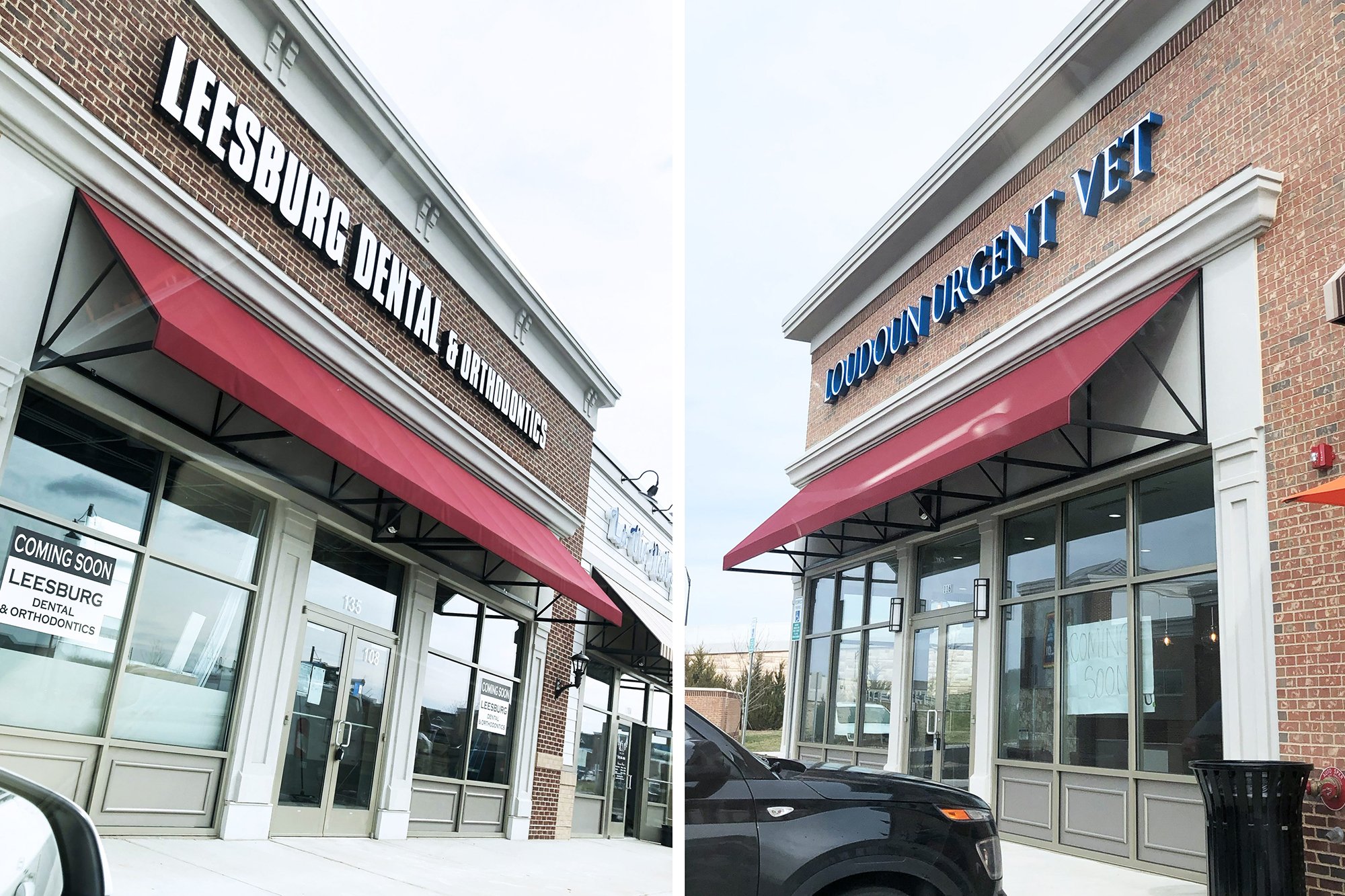
Table of Contents
ToggleSitting in front of a new strip mall in Leesburg, I took these two photos. I don’t know anything about these soon-to-open businesses, but the names illustrate an issue I see in local SEO every day.

Picture this: You’re about to launch your dream business. You’ve worked out the details and polished your offerings, and now you just need the perfect name. You want something that stands out, sticks in people’s minds, and—most importantly—helps customers find you.
So, you wonder: Should I include my city or town in the name?
At first glance, it seems like a great idea. Imagine you’re opening a bakery in Charleston. “Charleston Sweet Treats” has a nice ring to it, right? It instantly tells people where you are and what you do. But before you commit, let’s walk through the pros and cons—because while it can be a smart move, it’s not always the best one.
Adding your city or region to your business name is like putting up a bright, flashing sign that says, Hey, locals! This is for you! It tells people exactly where to find you and reassures them that you’re part of their community. If you’re running a service-based business—like “Loudoun Valley Plumbing” or “Nashville Home Repair”—it can boost your local SEO, helping you appear in search results when people are looking for businesses in your area.
It also creates a sense of hometown pride. Customers might be more inclined to choose “Chicago Crafted Coffee” over a generic-sounding alternative because it feels personal. It feels local.
But before you rush to register your new business name, let’s talk about the downside.
Fast forward five years. Your Charleston bakery is thriving. Tourists love your cookies. A food blogger raves about your pastries. A shop in Savannah reaches out—they want to sell your signature croissants.
But wait. Your business name is Charleston Sweet Treats. Would customers in Savannah be hesitant to buy from you? Could the name limit your ability to expand?
That’s the risk. If there’s even a small chance you’ll grow beyond your city—whether that means opening another location, expanding services, or reaching online customers—you don’t want a name that ties you down.
There’s also the branding factor. A location-based name can sound practical, but does it feel premium? If you’re an upscale interior designer, “Dallas Home Design” might not have the same high-end appeal as something like “Willow & Oak Interiors.”
Here’s the golden rule: Think about where you want to be in five or ten years. If you plan to stay hyper-local and serve only your city, using a location keyword might work in your favor. But if you have even a hint of future expansion in mind, consider a name that gives you room to grow.
If you love the idea of signaling your hometown roots but don’t want to be boxed in, you can always incorporate it in a different way. Your tagline, website copy, or About page can highlight your local connection without locking your brand into a single place.
The right name can help your business get discovered, but it’s what you do that builds trust and loyalty. Whether you choose a location-based name or go for something more flexible, make sure it reflects who you are and how you want to grow.
And if you’re still unsure? Let’s talk. A great brand starts with a great conversation.